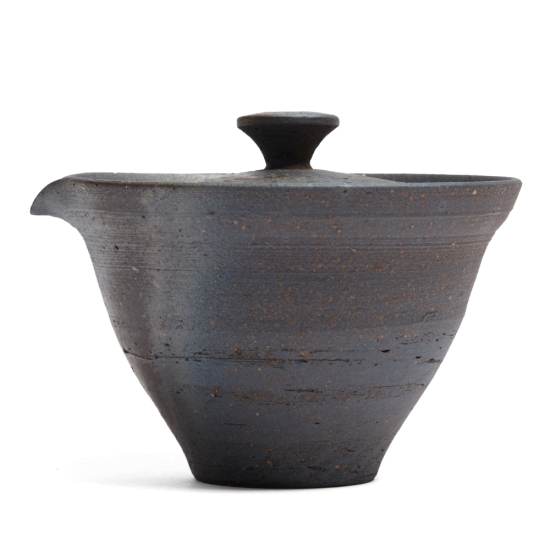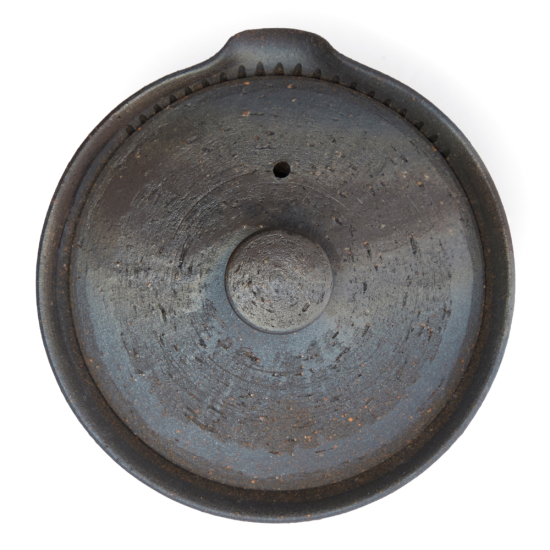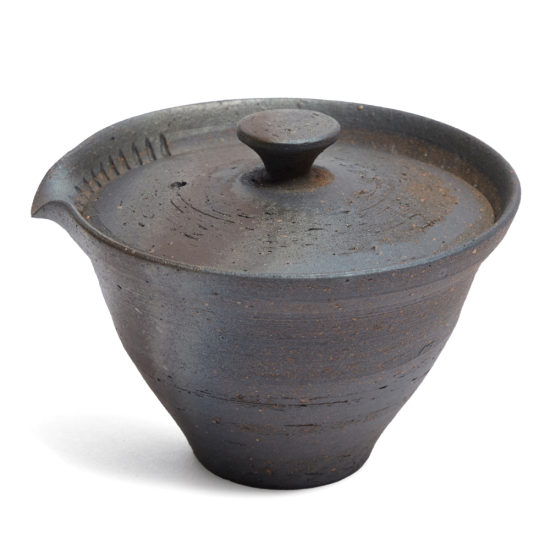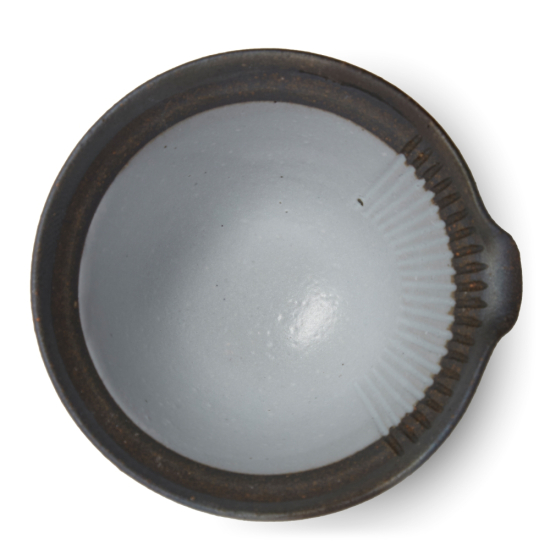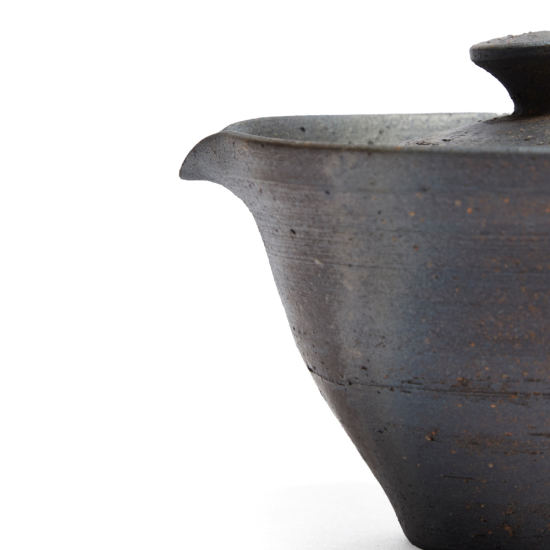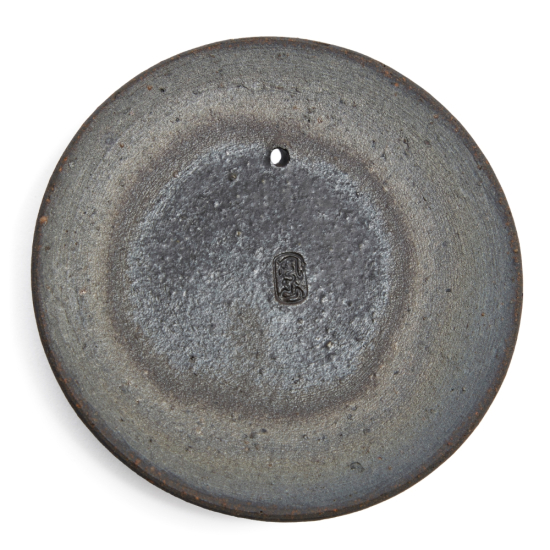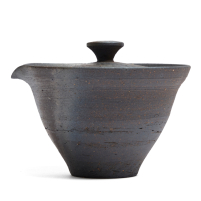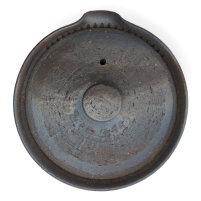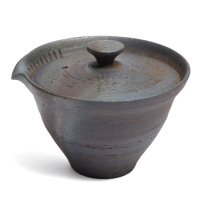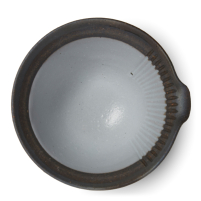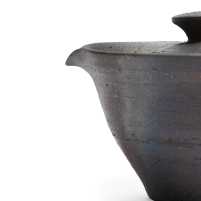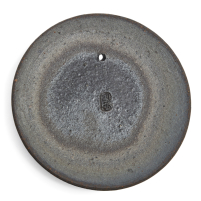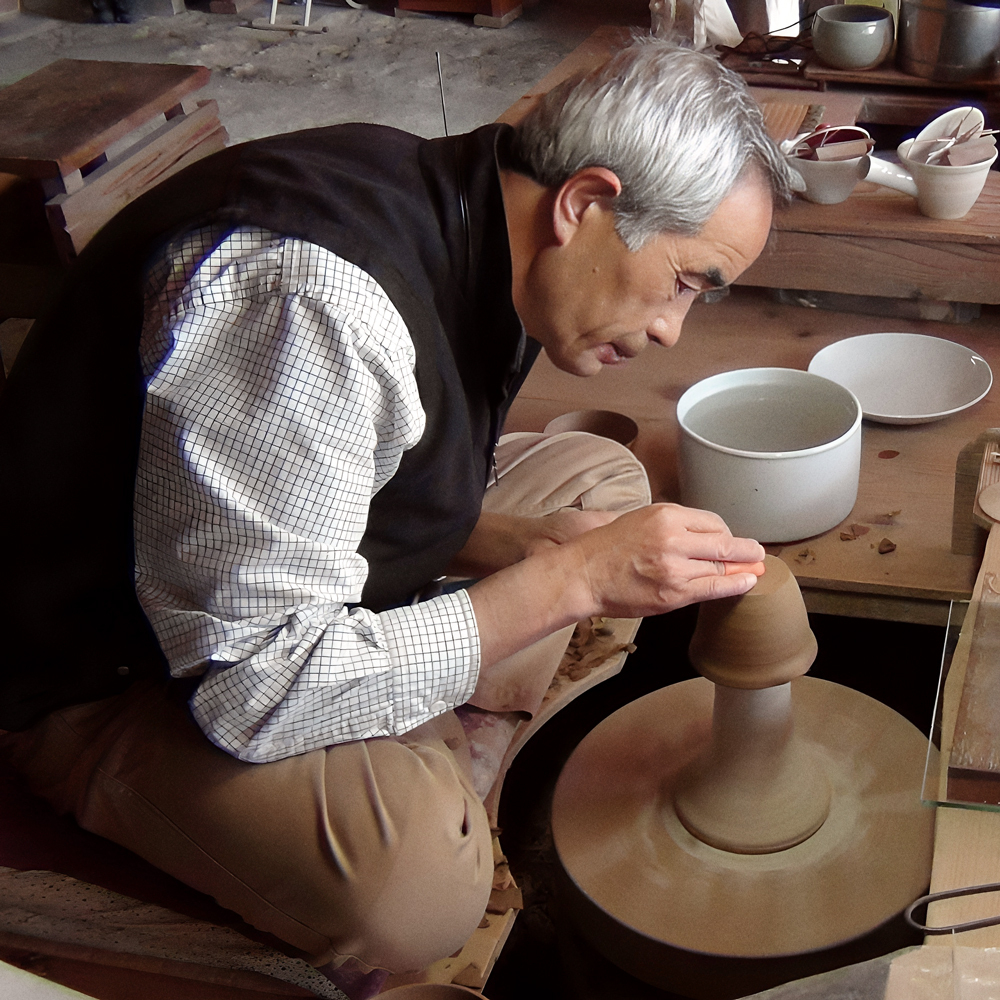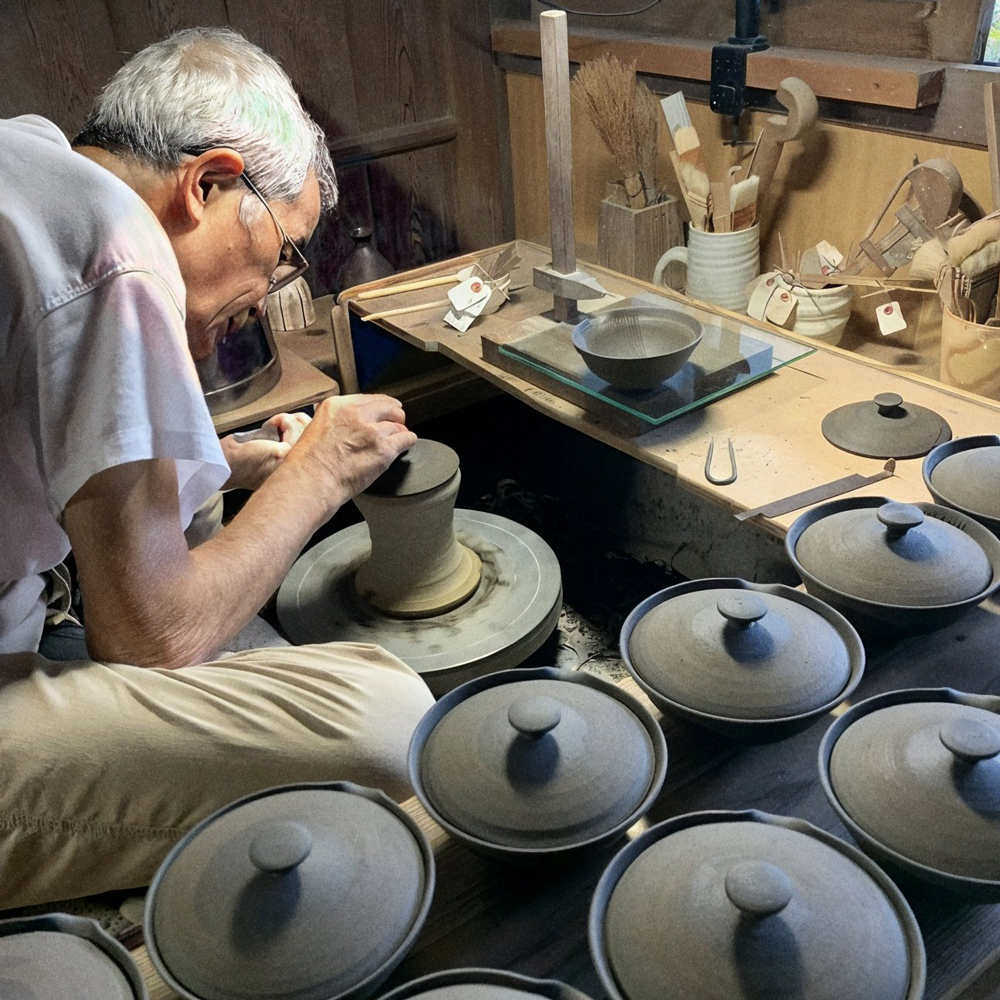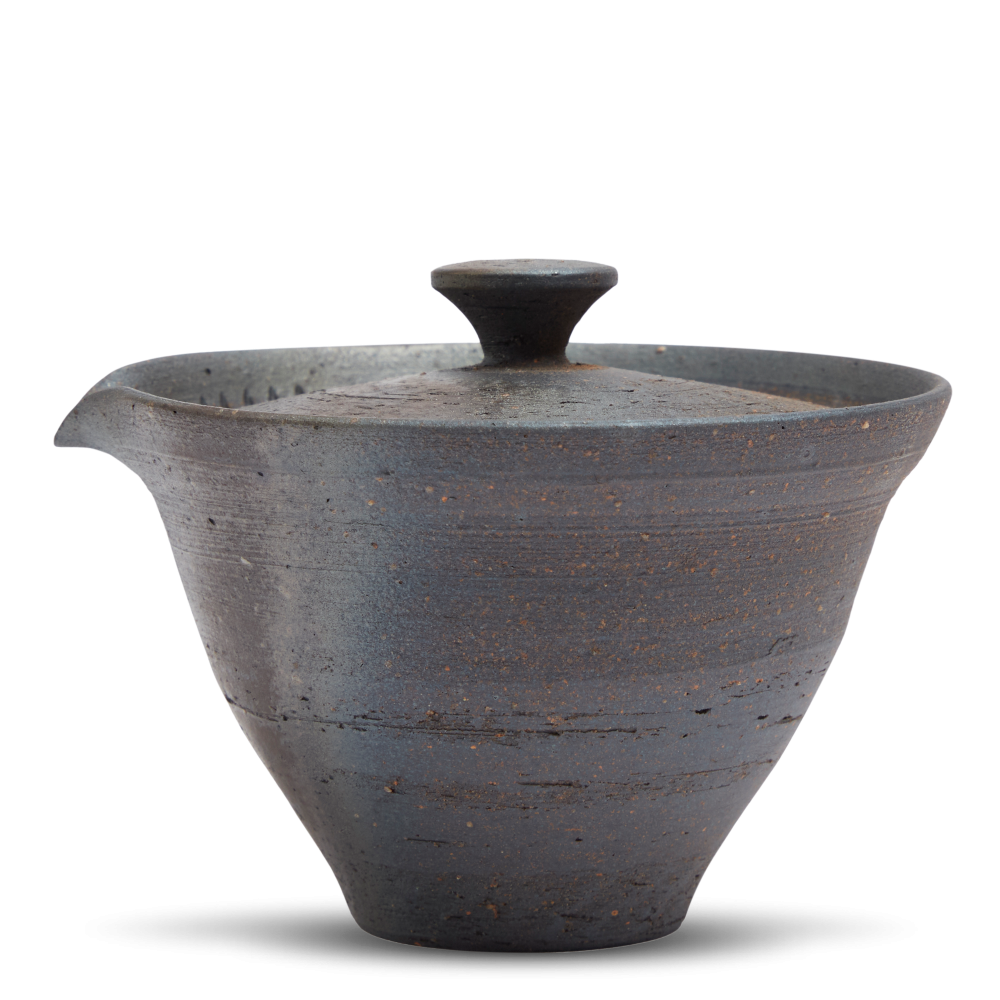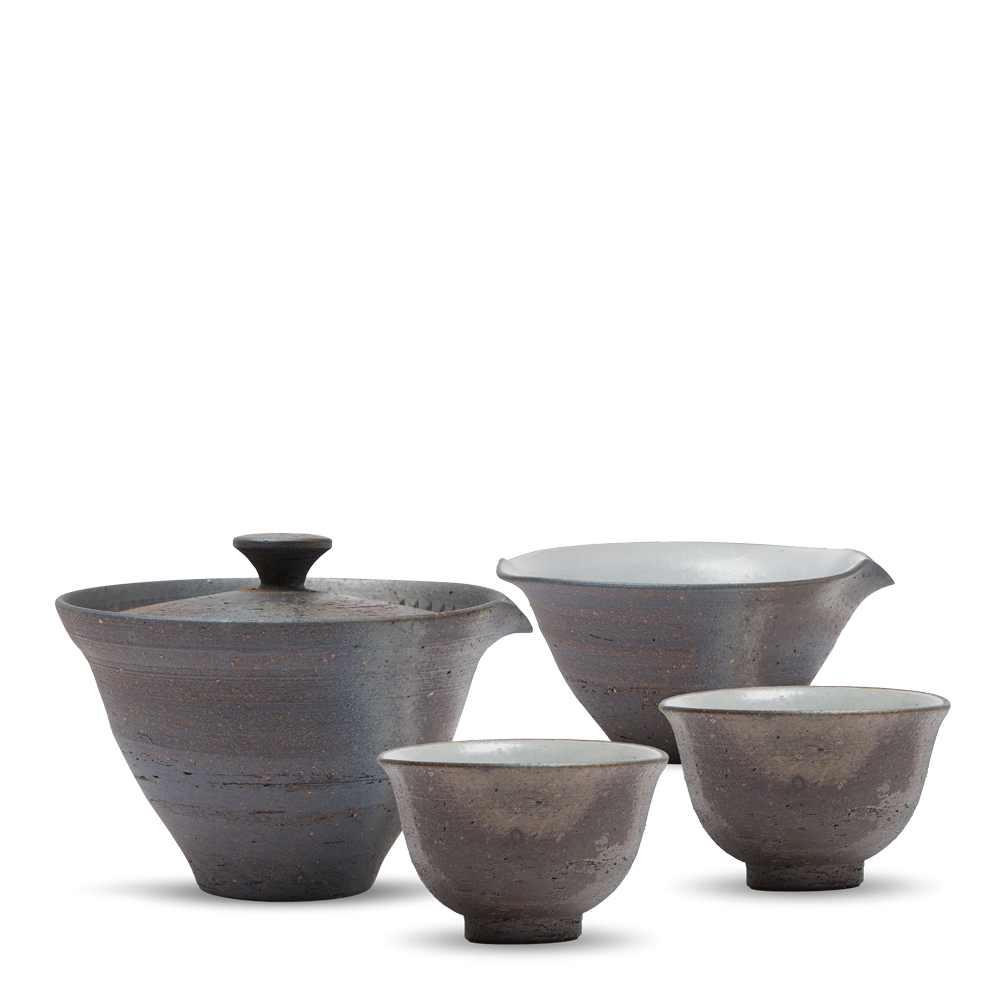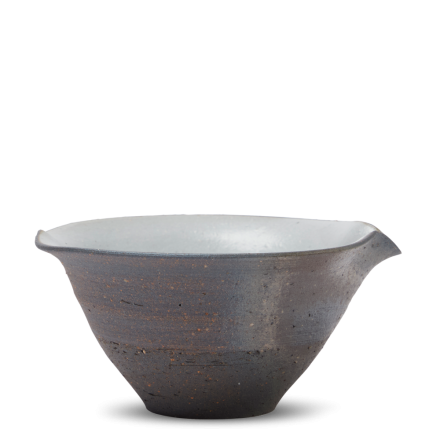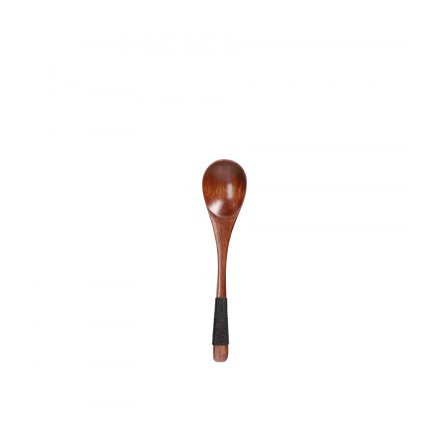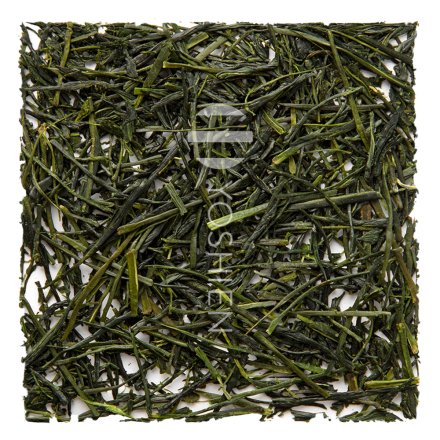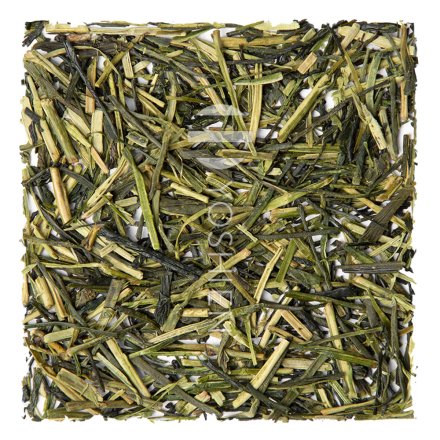Do not put in dishwasher, microwave or oven. Wash by hand with hot water then leave to dry naturally.
Hohin Shigaraki
Ibushi
Sawa Hozan
SKU
5854
Feel the earthy warmth of Shigaraki wares with this handsome dark brown Hohin handcrafted by master Japanese potter Sawa Hozan. His signature smoked Ibushi (燻し) finish on the outside offers the irresistible texture of freshly baked bread, while beneath the crust lies a smooth interior coated in a soft blue-grey glaze.
| Item | Hohin teapot, brown & light blue |
|---|---|
| Origin | Kōka, Shiga, Japan |
| Maker | Sawa Hōzan |
| Volume | 130ml |
| Dimensions | Ø10 x 7.5cm |
| Material | Ceramic |
| Artist mark | Seal to base |
| Packaging | Cardboard box |
Each piece is handmade and unique, therefore size and colour may vary slightly
In stock



